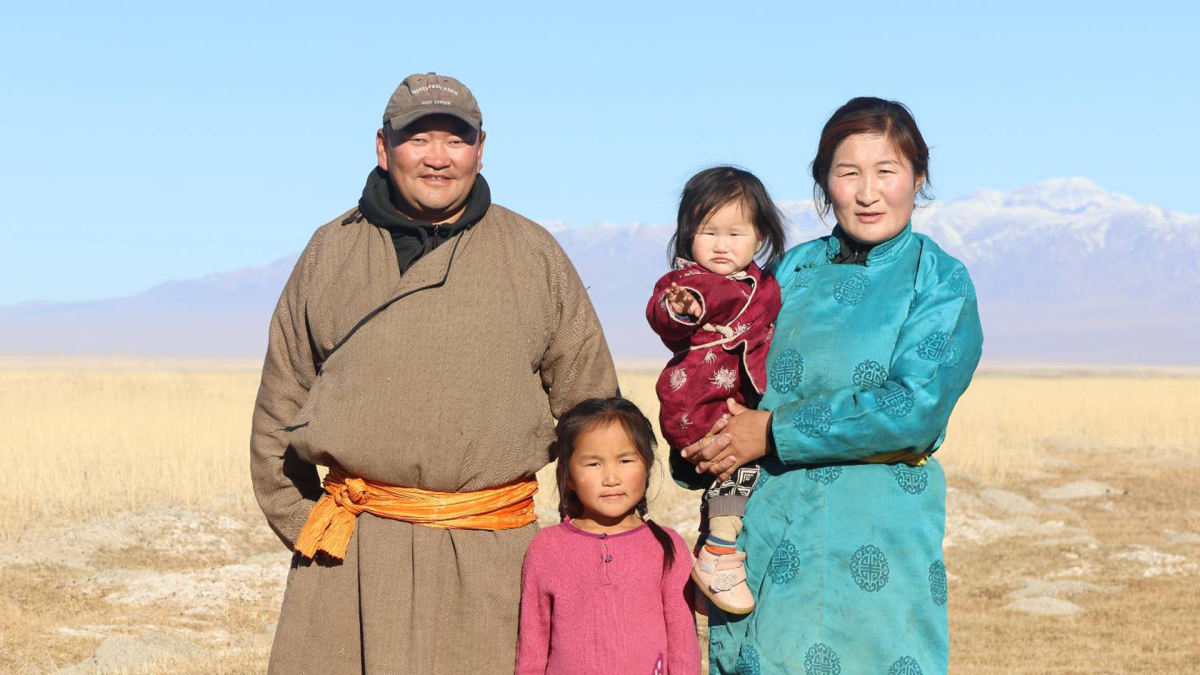“I was able to buy food and essential items I couldn´t afford before.” We supported Mongolian herders during harsh winters
Published: Nov 1, 2024 Reading time: 4 minutes Share: Share an articleAs Mongolia faces frequent dzud—an extreme winter condition that devastates livestock and livelihoods—herder families and their children are increasingly vulnerable. The harsh conditions often force herders to focus on immediate survival, leaving children at risk of neglect and without support. We work in remote Mongolian districts to safeguard the well-being of Mongolian children during challenging winters.

According to the UNDRR, climate change and environmental degradation are leading to increased violence against children and adverse effects on children's physical and mental health. In times of hardship, herder parents and caregivers often prioritise other emergency concerns, leading to a rise in child neglect. We are addressing the educational, health, and child protection needs of herder families affected by the dzud (severe winter conditions) in the remote areas of Bayan-Ölgii and Khovd provinces in western Mongolia. The local Children's and Family Development and Protection Offices of these provinces were entrusted with delivering the project services. As a result, multi-disciplinary child protection teams from 18 selected soums (districts) were trained and delivered child protection services.
Our teams visited 270 remote herder households, conducting child protection risk assessments and providing on-site guidance and resources to over 800 children and parents. We also visited dormitories in the 18 participating soum schools to guide dormitory staff, principals, and social workers on ensuring a safe study environment for children. Recognising the needs of these remote communities, we also distributed educational supplies, nutritional supplements, and books to support the development of nearly 3,400 children living in dormitories and herder households. Acknowledging the financial burdens faced by these families, the project also provided one-time cash assistance to the 270 herder households to help meet their children's educational and health needs.
The pace of climate change in Mongolia is accelerating; the average temperature has increased by 2.1°C over the last 80 years. This is twice as fast as the global average, and it is exacerbating the frequency and intensity of the country's devastating dzud events. According to the National Statistics Office, last year's dzud resulted in the loss of 8.1 million livestock animals across the country, further intensifying the child protection challenges faced by vulnerable herders. Recognising the gravity of this issue, other international organisations and the Mongolian government have also taken proactive steps. In addition to the adoption of the "Child Protection During Disasters and Emergencies MNS 6948:2021" national standard, which ensures that child protection is addressed at all levels during disasters, the revised Child Protection Law, approved earlier this year, also includes provisions addressing this issue.
Over the past 10 years, around 700 children have lost their lives in natural disasters and related accidents and domestic incidents across Mongolia. This is largely due to a lack of parental supervision, insufficient access to kindergartens and schools, and the absence of safe places for children to spend their free time, according to the National Emergency Management Agency. The "REACH- RESILIENCE, EDUCATION, AID FOR CHILDREN AND HERDER FAMILIES IN MONGOLIA AFFECTED BY DZUD" project findings shed light on these key risks facing children in herder households - the vulnerability of being left unsupervised while their parents tend to livestock or visit neighbours, children riding motorcycles, or being looked after by other children.
Notably, the project's child protection experts, who are typically accustomed to reacting to reported cases, have emphasised the project's unprecedented focus on proactive risk assessments for herder households. For the first time, dedicated resources and collaborative efforts have united provincial child and family protection specialists and soum-level teams to address these issues and safeguard the well-being of herder children.
People in Need (PIN) implemented the "REACH" humanitarian aid project in Bayan-Ulgii and Khovd provinces with financial support from the Embassy of the Federal Republic of Germany and the Club of Friends of PIN.

